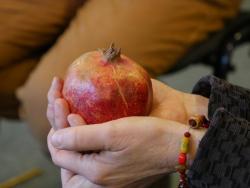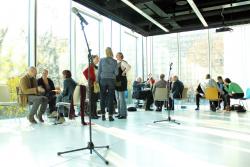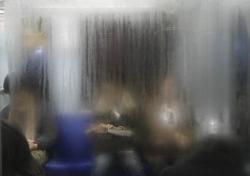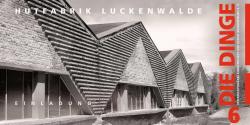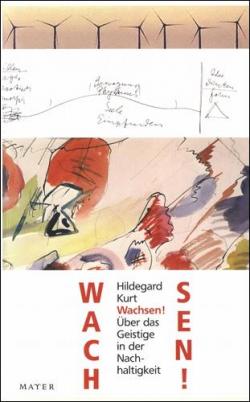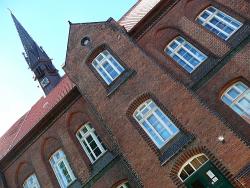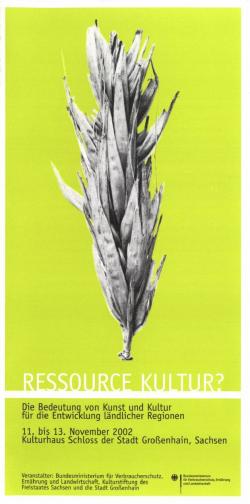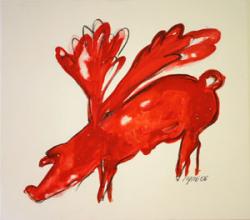Archive Selection
Across the pomegranate
soon you will find a detailed english discription here, we apologize.
Wie möchten wir zusammen leben? Was möchten wir zusammen unternehmen? Wir schaffen Begegnungsräume im Theater zwischen Geflüchteten und Friedenauer*innen und arbeiten zusammen mit einer Schauspielerin und einer Kulturwissenschaftlerin in einer Schauspiel- & Ideenwerkstatt.
Ein Projekt des theater morgenstern in Kooperation mit dem und.Institut für Kunst, Kultur und Zukunftsfähigkeit,
unterstützt vom Freundeskreis der Heinrich-Böll-Stiftung und vom Fonds Soziokultur
Exploring Cultures of Enlivenment
The und.Institut is exploring a new paradigm of enlivenment, following on from the May 2015 release of the manifesto “Towards Cultures of Aliveness. Politics and Poetics in a Postdualistic Age. An Anthropocene Manifesto”, authored by biologist and philosopher Andreas Weber together with cultural researcher Hildegard Kurt. An English version of the manifesto appeared in Solutions journal in December 2015. Among our activities in this exciting new field of endeavour are enlivenment workshops and seminars, in collaboration with organisations from diverse various fields of society, as well as talks and publications. We are grateful for the support of the Cocreatio-Stiftung für Kooperation und kollektive Entwicklung, the Kairos-Stiftung and the Selbach-Umwelt-Stiftung. You are warmly invited to join us in exploring cultures of enlivenment!
fair-handeln!
the handbook edited by cultural activist Jaana Pruess in cooperation with the und.Institut, Morgengruen communication and the Heinrich Boell Foundation was published in May 2014 in German and is now be available in Turkish. fair-handeln, in English meaning both `fair trading´ and `fair acting´, brings together ideas and tips for practicing sustainability in daily life. Alongside guides and recipes, projects representing the 'sharing, repairing and transforming' economies are introduced; describing ways of doing-it-yourself instead of buying; of borrowing instead of owning. In addition, this handbook contains essays from various authors and an index of contacts. The aim of fair-handeln is to convey knowledge of ways to live beyond consumerism and to encourage individual talents and capacities to unfold in all spheres of work and life. The production of the German handbook was made possible via crowdfunding, the Turkish edition is funded by the Heinrich-Böll-Foundation.
available via j.pruess@und-institut.de
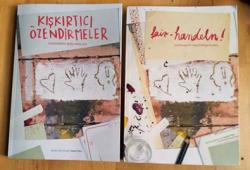
Book-Covers of fair-handeln!
order Turkish version via j.pruess@und-institut.de
The Shifting Gardens. Die Wandelnden Gaerten
Drawing on the double meaning of the German word 'wandelnd', which translates as both 'strolling' and 'transforming', The Shifting Gardens suggests that the primary garden is in ourselves - invisible, yet very real, as our mindset, our consciousness. From the image of the individual as a mobile and (potentially) transforming garden, one can challenge the current dogma of economic growth: what kind of growth do we actually need in order to thrive as human beings and communities? This workshop first took place in September 2012 at the National Institute for Education in Strobl, Austria, and has developed into an ongoing series. For current opportunities to experience this workshop please contact us via contact@und-institut.de.
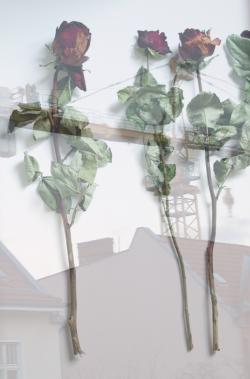
"The World as a Garden", in
The Shifting Gardens.
Photo: Rebecca Gasson
From Deep Down. A Social Sculpture Soil Seminar
From Deep Down invites participants to develop a new awareness of soil through connecting the cultivation of soil with what economist Ernst F. Schumacher called the 'culture of the inner human being'. What are the practical - including economic and political - implications of the fact that the words humus and humane stem from the same etymological root? What would be the equivalent of compost making in the human sphere? This seminar offers insights and creative practices for cultivating enlivened modes of perceiving, thinking and interacting. From Deep Down is among the und.Institut's ongoing cultural research activities exploring the value of soil, as a member of the National Support Group for Global Soil Week, since it was initiated in 2012. During 2015, the seminar was held regularly in widespread collaboration with various partners, as part of the 2015 UN International Year of Soils. More information and future opportunities to participate via contact@und-institut.de

From deep down
Photo: Rebecca Gasson
IN TRANSIT - The View of the Other
In the context of the 5th European Month of Photography, the und.Institut presented "The Gaze of the Other" from 17th October to 30th November 2012 in Berlin. IN TRANSIT understands photography as a documentary, artistic and political description of the world, and was presented in the midst of construction works at Ostkreuz station; one of the biggest public transport interchanges in Berlin. Curator Jaana Pruess brought images of professional photographers into dialogue with those of persons from all backgrounds who responded to the open call. In its heterogeneity, the exhibition showed perspectives on the relationship between the individual and society, on migration, on the search for work and for meaning and on new strategies to `survive´. The complete projects is documented in the blog in transit foto.
Forum Agenda 16
In Latin, the word agenda means "things to be done". As is becoming apparent worldwide, today "what needs to be done", or in other words, committed actions, can no longer be based primarily on given programmes. FORUM AGENDA 16 is a new form of communication: a transformative process that invites one to connect with one´s "inner necessity" (Wassily Kandinsky) - enabling creative participation for bringing about change in the world. In this process, open to all, participants support each other to find what is alive in oneself: one´s own agency. The cooperation partner is the Freies Museum Berlin, where FORUM AGENDA 16 has taken place since May 2014. For further information and to participate contact: contact@und-institut.de
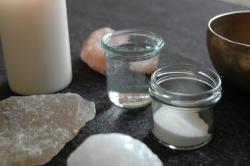
FORUM AGENDA 16
Photo: Rebecca Gasson
LOS-Lösung: Factory Talk from the year 2022
“How will we have lived since 2014?”
With this provocative question, Jaana Prüss, und.Institut board member, opened the discussion in a "talk show from the future". This event took place as part of the exhibition “DIE DINGE 6”, curated by Jaana in collaboration with the artists' organisation GEDOK Brandenburg, September - October 2014. Guest speakers included Prof. Harald Welzer (FUTURZWEI. Stiftung Zukunftsfähigkeit), Dr. Phillip Ruch (The Center for Political Beauty), author Dr. Ute Scheub and artist Cornelia Schlemmer, as well as other representatives from art and politics.
International Weimar Summer Courses
From its founding until 2013, the und.Institut collaborated annually with the International Weimar Summer Courses. Within classical heritage surroundings, participants from more than 30 countries seek out the cultural contours of a sustainable world. From 2004 to 2009, the courses on "art and sustainability" were run by Hildegard Kurt and artist Shelley Sacks.
The 12-day theory-practice programme actively engaged participants in an introductory exploration of social sculpture and aesthetic questions, relevant to the shaping of an ecological and socially just world. The course took a genuinely interdisciplinary approach and a broad historical view, looking back to Goethe, Schiller, the Bauhaus and Joseph Beuys and forward to the present day, where new forms of social sculpture, appropriate to the challenges of the 21st century, need to be developed.
Some voices and images of participants can be found here.
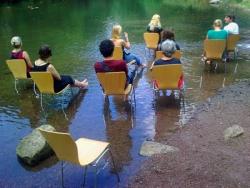
International Weimar Summer Courses (PDF)
Photo: Pablo Cabezón
Agents of Change and Ecological Citizenship
In July 2011 Shelley Sacks and Hildegard Kurt facilitated a social sculpture workshop with this title at Oxford Brookes University. The Social Sculpture Research Unit (SSRU) at the university is the first worldwide research centre to explore the expanded understanding of art, coined by Joseph Beuys with the declaration "every human being is an artist". Artist Shelley Sacks co-founded the SSRU in 1998 and has directed it since then. In 2012-2013 Hildegard Kurt, co-founder of the und.Institut, was Senior Lecturer in Social Sculpture within the SSRU. The "Agents of Change and Ecological Citizenship" workshop offered participants an opportunity to experience some of the key ideas and strategies developed in the field of social sculpture.
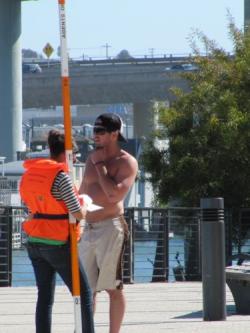
James Reed, Agents of Change
Growing! On the Spiritual in Sustainability
Under this title, Hildegard Kurt, co-founder of the und.Institut, carried out a research project investigating the following questions: in what sense is art a form of knowledge? How does the anthropologically expanded concept of art relate to the necessary rethinking of our concept of science? How can we embrace the dimension of the spiritual in a concept of culture that perceives both humans and nature in constant evolution?
The subtitle of this research refers to Wassily Kandinsky´s 1912 book On the Spiritual in Art. This book has been re-published in 2010 by Mayer Edition, Stuttgart in German.
Heiligengeist School Lueneburg. A Growing Sculpture
Heiligengeist School, an elementary school in the village of Lueneburg, near Hamburg, has been our partner in an art project aiming to strengthen the school organism through a sculptural, artistic process. The project was realised under the artistic direction of George Steinmann and Hildegard Kurt, with the scientific support of the Institute for Integrative Studies at Leuphana University in Lueneburg. In September 2009 the German UNESCO-Commission declared the Growing Sculpture Heiligengeist School Lueneburg an official project of the UNESCO Decade of Education for Sustainable Development.
Komi. A growing sculpture 1997-2006
In 2007 the book Komi. A Growing Sculpture 1997-2006 came out, edited by artist George Steinmann and the und.Institut. In three languages (English, German, Russian) and with numerous four-colour photographs and video stills, the publication documents the "Centre for Sustainable Forestry" - a growing sculpture initiated by Steinmann in the Russian Komi Republic, This multimedia, transdisciplinary art project also explores the artist's research on the local Taiga forest, and was developed in cooperation with local forestry experts over the course of almost ten years. The book was supported by the Swiss Agency for Development and Cooperation (DEZA) and published by Stämpfli Verlag, Bern.
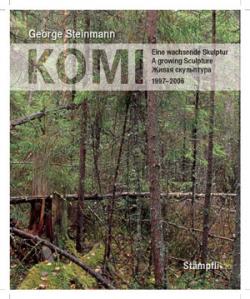
Book cover Komi. A Growing Sculpture
c u l t u r a 21. Art and sustainability in rural space
This seminar series was initiated in 2002 and took place over a period of several years, offering a context in which the conditions of rural spaces were treated as cultural challenges. Art is the key motivating power behind this discussion. The programme consisted of various modules: each a unit in its own right and at the same time interdependent. The project coincidentally bears the same name as the later founded network and association Cultura21, however the two are unrelated.
The modules so far include:
- Resource Culture? The significance of art and culture in the development of rural regions. National workshop in Großenhain, Saxony in November 2002,organised by the German Ministry for Consumer Protection, Nutrition and Agriculture (BMVEL), the Cultural Foundation of Saxony and the town of Großenhain. As a result of the workshop, a list of guidelines was developed and presented to the Ministry.
- c u l t u r a 21. International Artists' Symposium in Saxony in Sept./Oct. 2003. With Maja Bajevic (Bosnia-Herzegovina), Jackie Brookner (USA), Tim Collins/Reiko Goto (USA), Dellbrügge/De Moll (D),Till Krause (D), Susan Leibovitz Steinman (USA), Dirck Möllmann (D), Igor Sacharow-Ross (Russia-D), George Steinmann (CH) and Insa Winkler (D). The symposium was financed by the Kulturstiftung des Freistaates Sachsen, the Ostdeutsche Sparkassenstiftung and the Kreissparkasse of Riesa-Großenhain and the town of Großenhain.
- Dresscode. How to dress in the countryside. Colour-coded clothes for the country 2003/2006. A project by Dellbruegge & de Moll, conceived within the International Artists´Symposium c u l t u r a 21 in Großenhain, Saxony.
- The Acorn Pig. Artist Insa Winkler conceived the idea for this transdisciplinary artistic project within the International Artists' Symposium c u l t u r a 21 in 2003. Since then, she has successfully managed to employ diverse artistic forms of expression to raise public awareness of an attractive alternative to agro-industrial pig breeding. >>>

